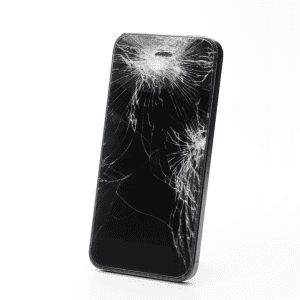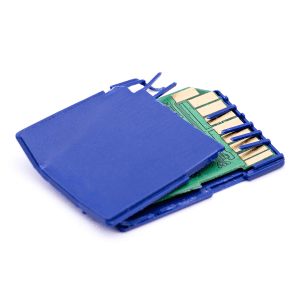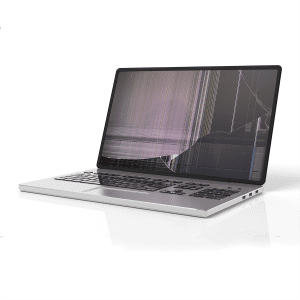RAID 6 SERVER RAID RECOVERY
RAID 6 Data Recovery Service from True Industry Experts
If your organization relies on a Redundant Array of Inexpensive Drives (RAID) 6 for data storage, your critical information isn’t always safe. RAID 6 is useful technology that prevents downtime if a drive or two malfunctions, but sometimes organizations and individuals still need data recovery.
HOW RAID 6 WORKS
In computers, the word parity describes a system that distributes data and checks for material that is missing or overwritten during transfer. It is in addition to data added by the users and is used during reconstruction after hard drive failure. If one value is missing, as drives rebuild data they compare it to parity information. Drives lose some of their space to parity storage, since every data stripe is also in parity.
RAID 6 systems stripe data between three and 16 drives, with parity data spread evenly across drives. RAID 6 functions in the same way, but with dual parity. It takes at least four drives, but it can still function if two drives fail.
RAID 6 provides fast data transactions but is somewhat slower than RAID 5 because of the extra parity calculations. Drive failures impact the entire system, and while drives can be replaced without a system shutdown, the technology is complex. Rebuilding arrays after failure can take a long time.
GET YOUR DATA RECOVERY STARTED
Just click the button below to contact a Customer Service Representative.
SPEAK WITH A REPRESENTATIVE NOW!
Common RAID 6 Failures
Most of the time, RAID 6 provides effective storage, strong security and dependable performance. If your organization is looking into data recovery, it is probably because something has gone wrong that is outside the realm of your IT department’s expertise. These are the most common failures requiring data recovery:
- Failure connected to electrical hardware – Sometimes components such as the motherboard, RAID controller or power supply break down. If your controller fails, the entire array is inaccessible until it becomes operational again.
- More than one hard drive fails – RAID 6 arrays function unless three hard drives fail simultaneously. It sounds almost impossible, but because of the way RAID 6 arrays function, two drives can fail without users noticing. When the third fails, you need an expert.
- Operator error – It doesn’t matter how many times your array copies data if those data are incorrect. When users delete files, the array deletes them everywhere they exist. What was designed for efficiency and safety becomes a redundancy problem.
DATA RECOVERY AFTER RAID 6 FAILURE
Immediately power off when a RAID array goes down. Many data recovery problems aren’t the result of electrical surges or viruses, they’re created during attempts to recreate or restore what was lost.
Your organization’s IT staff might be highly trained in all the technology at your facility, but data recovery is a complex issue most technology professionals seldom face. When they rush to recover data and power up equipment, sometimes they damage or lose critical files. It’s always best to consult an expert for complex RAID data recovery.
HIRE THE RAID 6 DATA RECOVERY EXPERTS
At Flashback Data, we recover and restore data from virtually every available type of media. We have a no-data, no-fee policy, and our friendly experts are ready to answer your questions. Contact us today for a free quote.
WE RECOVER DATA FROM ALL KINDS OF RAID CONFIGURATIONS INCLUDING //
RAID 0
RAID 0+1
RAID 1
RAID 5
RAID 6
RAID 50
NAS
SAN
HELP! WHAT DO I DO IF MY RAID SYSTEM DRIVES FAIL?
It depends on the RAID level and your knowledge of the system. If it is a complicated setup that you are unfamiliar with or feel uncomfortable at all, contact a data recovery RAID professional immediately, especially where critical information is involved. In the event of a single hard drive failure in a redundant RAID type where the data is still accessible, replace the failed drive with an exact spare and let it rebuild the array. If you have a second failure, or you have hot spares set up and you are unsure of the order of the drives, you will only make matters much worse or even unrecoverable if you try to replace or rebuild drives. Whatever you do, do not reinitialize your system if you are concerned for you data.
We have seen countless situations where staff that is not completely familiar with their systems, try to ‘fix’ the problem but only make it impossible to perform a RAID data recovery. In most of these situations, it would have been possible if they contacted a data recovery professional before trying to reinitialize.
Request a Call Back
REQUEST A CALL BACK
Your Name *
Phone Number *
Time to call
Time until
Comments *
CALL ME BACK
Call us to speak to a Customer Service Representative:
866.786.5700
WANT MORE INFO?
Our Process
Read about how our process works from your computer to our lab and back.
Risk Free Evaluations
Read about our No-Data, No-Fee Guarantee and get your media evaluated at no cost.
What We Recover
Learn about all of the types of media and system types we recovery from.
Our Lab
Read all about our accredited data recovery lab.
FAQ
Visit our frequently asked questions page.
Data loss is a serious problem, especially when critical server data is involved. Flashback Data is here to find the best solution to your problem. We pride ourselves on our customer support and we are happy to speak to you about your data loss situation. Please call us at 866.786.5700 or fill out the form here and someone will contact you shortly.





